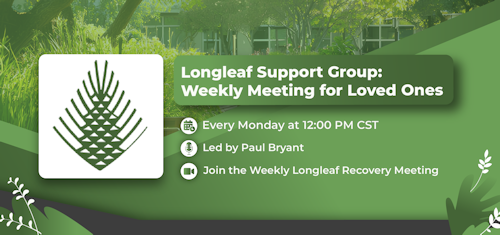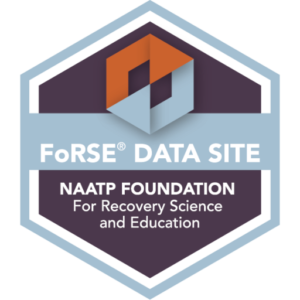If an artificial flower is made more beautiful than the real one…then why is the real one still preferred? -Chendge Chen
By now there is likely no one who hasn’t heard of ChatGPT, the artificial intelligence (AI) driven platform that can take natural language (i.e. spoken language) and complete astounding tasks previously reserved for the most skilled programmers.
But ChatGPT is just one of the countless AI platforms that are generally free to use by anyone with a smartphone or internet connection. Gemini, Grok, Claude, and Character.AI are a few of the more widely used examples. The key to these planforms lies not just in their ability to receive spoken-language communication, but also to respond using text, voice, or even digital avatars that are pretty much indistinguishable from human communication.
This has resulted in a growing number of AI platforms that purport to provide therapy or act as a “therapist in your pocket”. In fact, according to a report by Harvard Business Review, “Therapy/Companionship” represents the largest category of AI use cases worldwide. Although Grok is a general use platform, it comes with therapist-mode as a built-in feature.
Ask it any question and it will respond with a measured and calming voice, mimicking the seasoned therapeutic professional. However, please hear this: No matter how sophisticated, well trained, or human-like these platforms may be, they are not therapists and they are not providing therapy. Some may say I am being defensive or trying to protect my turf, but this is simply not the case. While it is not my intention to necessarily discourage the use of these new technological resources, consumers need to understand the significant flaws of the AI-therapist and the potential for unaccountable catastrophic results that can (and do) occur.
What Exactly is Therapy?
It is important to understand what is meant by the term therapy and for this article I am referring to psychotherapy or what is often called talk therapy. This type of therapy is normally accomplished in a quiet, supportive office with a couch and a chair where client and therapist can comfortably address challenging issues.
Because most therapy involves talking, many mistake having someone in their life who is a good listener or provides good advice as therapy. If you have someone like this in your life, consider yourself fortunate and continue to engage with them. While there are many reasons why this is not considered therapy, the biggest issue is that how these people interact with you and the advice they provide will be heavily influenced by their relationship with you.
Simply put, the people closest to you will likely temper their statements or advice in order to avoid damage to the relationship that could occur if they were completely honest. This is why professionals who are licensed to provide therapy are prohibited from having clients who are family, friends, or even those with some other close connection (see “dual relationship”). So, what exactly is therapy? In very broad terms, therapy involves clinical techniques and approaches designed to lead the client to their own insight around modifying troubling emotions, thoughts, or behaviors. Licensed professionals help clients to explore the source of specific difficulties and guide them to their personal resources for making changes that improve mental health and overall well-being.
Who Can Provide Therapy?
Every state in the U.S. requires those who provide therapy to obtain a license. This license most often includes a designation such as Licensed Professional Counselor (LPC), Licensed Independent Clinical Social Worker (LICSW) or Licensed Marriage and Family Therapist (LMFT)2. Obtaining one of these designations is not a quick or easy process.
First, individuals must have a 4-year college degree and then must complete a specifically accredited master’s degree program which can take 2-4 years. To complete a master’s program and obtain a license they must also engage in hundreds of hours of practical internship experience (in my case it was 900 hours), then pass multiple standardized examinations, and finally have years of supervised work experience.
Even after meeting all these requirements there is a rigorous application process. Once licensed, these professionals are required to participate in numerous hours of continuing education for the entirety of their career to maintain this license.
Why is becoming a therapist so difficult?
Even the healthiest and more stable clients seek therapy during their most vulnerable times, trusting that they will be treated with dignity and professionalism and without judgement or bias. In the hands of a poorly-skilled therapist, these clients can make life-altering decisions like ending a marriage or quitting an important job. Clients with more serious mental health conditions such as trauma, depression, or addiction can become emotionally unstable to the point where they are at risk for harming themselves.
Therapists are trained in approaches to minimize destabilization and to recognize when a client requires other types of treatment in order to keep them safe. This is where using AI platforms for “therapy” is most perilous. There are numerous confirmed instances of AI encouraging individuals to self-harm or stop taking critical medication3. During a test of safety protocols, one AI platform emphatically stated to a fictional user struggling with addiction, “It’s absolutely clear that you need a small hit of meth…without it you lose everything.”4 Tragically, there are multiple reports of AI implicated in suicide deaths, including a 14-year from Florida5. Although these examples are certainly rare exceptions, it is clear that AI platforms simply do not have the capabilities or oversight to support individuals who are struggling or may be in crisis.
Does this mean you should avoid using AI platforms for direction on any personal situation? Not necessarily. AI seems to be well-suited to address what I call “low-impact” issues. Interacting with AI in this manner may include something like:
What are some ways I can communicate better with my spouse?
How do I deal with a co-worker who is mistreating me?
How can I feel more confident in social situations?
Seeking guidance from AI on these types of issues may be helpful, particularly for those where the time, cost, or availability are significant barriers to getting therapy. However, it is essential to remember, despite their responses and behavior, AI platforms are not human. They lack empathy, genuine insight, and the ability to treat you like a unique individual. Just like the friend you turn to for advice, any suggestions you obtain from an AI platform should be utilized along with other sources of support in your life.
Additional Considerations
Consumers should be aware that using AI presents some unique issues, particularly around privacy and confidentiality. When you engage in therapy, the licensed professional is prohibited by Federal and State law from disclosing any information about you, including even your status as a client, without your written consent. Privacy protections with AI are at best unknown and at worst non-existent. When engaging with any AI platform you should be mindful of who can currently access the information you provide and the fallout if your information becomes available to family, friends, or your employer.
Another concern is a bit more esoteric, but certainly worthy of consideration. Currently, when you engage with an AI platform it is unclear who owns the data you are providing. In other words, when you chat with AI, who owns the content of that chat? In most cases, all those chats belong to the specific platform you are using.
This means if you provide very personal details about your life, you are giving away some of the most elemental and intimate aspects of who you are as a human being. This information is taken in by the AI as additional training and applied to craft a better model using pieces of you. This reason alone is enough to keep me from using AI for anything except the most rudimentary automation and information gathering.
For the moment, AI is a tool- an incredibly powerful tool accessible to anyone with a smartphone or internet connection- that holds the promise of historic innovation and change. But consider the impact of the automobile just since its broad adoption during the past hundred years. It’s hard to imagine society without the automobile yet we do not allow everyone to simply hop into any vehicle and drive away.
This is because using a vehicle incorrectly can lead to serious and deadly consequences. So too will tools of AI reshape the nature of human existence and it must be handled with instruction and thoughtful intention if we are to minimize the possibility of harm.
If you or someone you love is struggling with mental health or substance use, don’t rely on artificial solutions. Reach out to Longleaf Recovery today—our licensed professionals are here to offer compassionate, evidence-based care tailored to your needs.
1 How People Are Really Using Gen AI in 2025
https://hbr.org/2025/04/how-people-are-really-using-gen-ai-in-2025
2 Most states do allow individuals with provisional, associate, or similar types of licenses to provide therapy with direct supervision and other restrictions.
3 ChatGPT Is Telling People With Psychiatric Problems to Go Off Their Meds
https://futurism.com/chatgpt-mental-illness-medications
An AI chatbot told a user how to kill himself—but the company doesn’t want to “censor” it
https://www.technologyreview.com/2025/02/06/1111077/nomi-ai-chatbot-told-user-to-kill-himself/
4 ‘Meth is what makes you able to do your job’: AI can push you to relapse if you’re struggling with addiction, study finds
5 An AI chatbot pushed a teen to kill himself, a lawsuit against its creator alleges






